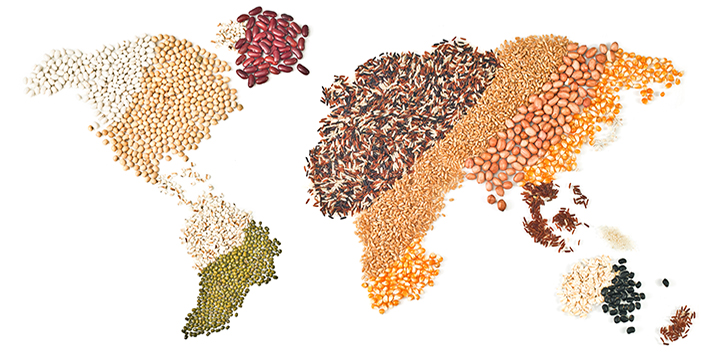Steve Johnson is rather sceptic in the Financial Times (August 19) on the evidence that speculative investment pushes up prices beyond the level that intrinsic supply and demand would dictate. interesestingly, he does propose that a precautionary should be applied. He writes: ‘if speculation does push up spot prices then people die. If it doesn’t, yet speculation is banned unnecessarily, all the world has lost is the opportunity cost of a potential investment.’
The heavyweight battle between the financial industry and the do-gooders
over the issue of speculative investment in agricultural commodities appears to be edging in the direction of the latter.
The sprawling Dodd-Frank Act has set the scene for tougher position limits in commodity futures and swaps in the US, limiting speculative activity.
Lobbyists are pushing the EU to go further and ban financial entities from speculating in commodity derivatives full stop when the 27-nation bloc reviews its Markets in Financial Instruments Directive in the coming months.
But, as we report elsewhere in FTfm, some European banks are already taking the hint and deciding to leave the table of their own volition – even if they are only opting out of high-profile, branded exchange traded products, not the far larger and more opaque world of over-the-counter swaps, notes and structured products.
For many banks, particularly those with limited market share in the sector, this would seem prudent. One might hope that by now bankers are aware that even they can succumb to scandals, and are starting to anticipate from whence they may come.
The argument of the antis is that speculative investment pushes up food prices beyond the level that intrinsic supply and demand would dictate. For all the huffing and puffing there is precious little evidence to support this.
Nevertheless, there is a case for the precautionary principle applying here – if speculation does push up spot prices then people die. If it doesn’t, yet speculation is banned unnecessarily, all the world has lost is the opportunity cost of a potential investment.
And how precious is that opportunity anyway? The spot price of a given commodity may rise markedly over a a period of time, but futures-based investors are likely to receive a far lower return as the roll yield – the return earned from selling a near-term futures contract before it matures and buying a longer-dated contract – will be negative when the futures curve is upward sloping, known as contango.
Research last year by S&P Indices suggested that investors have historically earned higher returns by investing in commodity-related equities rather than the futures markets.
These findings should offer food for thought for investors. If one believes agricultural commodity prices are likely to rise, then why not gain exposure to this trend by investing in food producers, fertiliser companies and farm machinery manufacturers which, after all, tend to be leveraged plays on rising food prices?
Moreover, institutional investors and wealthy individuals are perfectly capable of investing in farmland and raising yields by pumping in capital to improve irrigation, soil fertility and farming techniques.
Compared to dull old futures, this approach has the potential to reap far greater benefits for all concerned – investors could arguably earn greater returns while increasing the global food supply.
This approach would yield one further benefit.
Data from Barclays Capital show net inflows into agricultural futures markets have been positive every year since at least 2007. Yet food prices fell back markedly after peaking in 2007-08.
However the existence of speculators has allowed politicians and campaigners to paint them as bogeymen and blame them for rising food prices. Removing speculation from the equation would simplify matters and, come the inevitable next spike in food prices, leave policy makers and special interest groups no option but to address the real issues that are causing demand to outstrip supply – namely an ever-spiralling (and increasingly wealthy) global population, climate change and, in too many cases, degradation of soil quality due to over-intensive production.
Given the huge importance of food security, the benefits of this scenario would massively outstrip the potential loss of a small source of return to the investment community.

